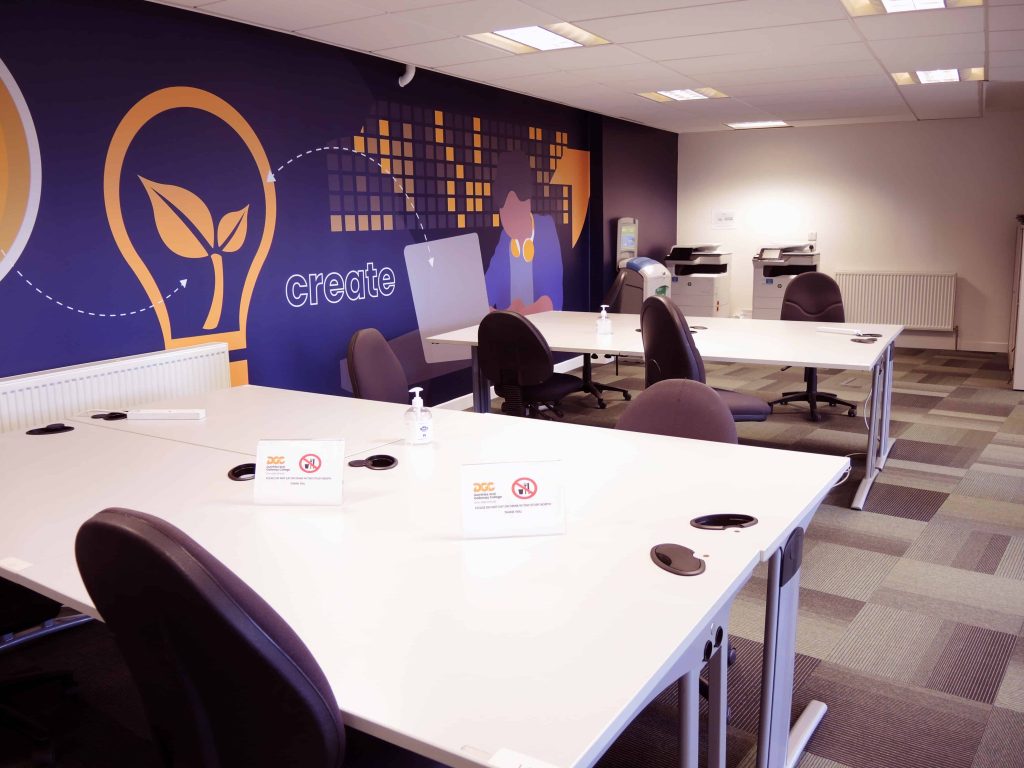Guide to Study Skills: Learning to Learn
How do you learn best? What are your learning preferences?
And how can you shape yourself to be a better learner?
Learning how to be a good learner is an essential part of being a student – and for life in general! In this guide, we look at 5 areas to help you with your learning. These areas make the acronym SHAPE, which stands for: Styles, Habits, Attitude, People and Environment. We hope this guide will help you to become the best learner you can be.
Styles
A big part of learning is taking in new information. We all have different preferences for how we take in information – and remember it for the future. It can be useful to think about 3 different learning styles…
- Seeing
Some people understand best when information is presented in front of them. Examples: images, diagrams, drawings, videos and demonstrations. - Hearing
Some people understand best when information is talked through and when different views are heard. Examples: lectures, podcasts and group discussions. - Hands-on
For some they understand best through doing, moving and getting stuck in. Examples: hands-on activities and opportunities to practice what is being talked about.
Think about a time when you learned something new. How did you take in the information? Which of the styles do you prefer? When you are faced with learning something new, use your learning preferences to get started!
Although we all have certain preferences, we all learn in many ways. So, also remember that variety helps to deepen your learning on a subject 😊
We are what we repeatedly do. Excellence, then, is not an act, but a habit
Habits
Good study habits are the most dependable way to become a better learner. Your habits shape your future.
You can read about the kinds of good study habits to get into in this series of Study Skills guides. From ‘Organising Your Work’ to ‘Note-taking’, these offer valuable guidance for all students at the College.
But, getting into good study habits doesn’t just happen by magic. So, how do you go about forming new habits?
- Create a plan…
– Identify what you want to change and why. How will you benefit?
– Make your plan specific and achievable. Start with small steps.
– Expect obstacles. Change is rarely a smooth path.
– Focus on one habit at a time. Trying to change multiple habits at once can backfire. - Put it into practice…
– Tell others about your plan and ask them to help you achieve it.
– Give yourself time. Change doesn’t happen overnight. Some research says it takes at least 3 weeks to form a new habit.
– Remind yourself of your goal regularly – and why you are doing it.
– Build your awareness. When things don’t go to plan, figure out why.
– When things do go to plan, reward yourself 😊
Attitude
One of the key things to develop as a learner is a growth mindset. Likewise, one of the things that can limit someone as a learner is having a fixed mindset.
What kind of mindset do you currently have?
- I can learn anything I want to
- When I’m frustrated, I persevere
- I want to challenge myself
- When I fail, I learn
- If you succeed, I’m inspired
Growth Mindset
- I’m either good at it, or I’m not
- When I’m frustrated, I give up
- I don’t like to be challenged
- When I fail, I’m no good
- If you succeed, I feel threatened
Fixed Mindset
The good news is that you can shape your own attitude and shift from a fixed mindset to a growth mindset. Like developing new habits, this does not happen overnight. But one of the best ways of doing this is
to pay attention to your words and your thoughts.
What you say to yourself about your course really matters. Reflect on your thoughts. Step by step you’ll start to see growth. Which step have you reached today…?
People
Most of our important learning happens with other people.
Here are 5 top tips to on how best to learn with others:
- You can learn from everyone (not just your lecturers).
So, value everyone’s perspectives and experiences. - Observe how other people go about their work.
You’ll be sure to pick up something new. - Seek out someone else’s point of view. Be active in
hearing from others and be open to changing your views. - Ask for help. Nobody knows everything. Asking for help from others is a sign of strength, not weakness.
- Offer to help others. One of the best ways to learn
something is to try to teach it to someone else.
Also, get help at College from a number of staff around the college. Remember they’re here for you!
Environment
Just as the people around you can shape your learning, so can the environment that you are in. What environment helps you learn best?
- Do you prefer to be on your own or with others who are studying too?
- Does noise distract you or help you? What about music?
- Is your phone a distraction? If so, turn it off!
- Do you like bright spaces or can they give you a headache?
- Reflect on your experiences and find what works for you!
Our Learning Zones at both Dumfries and Stranraer provide a great range of ideal, calm study spaces for all students. Here you can also borrow one of the college Chromebooks to use, and even book a private study pod for free.

Download / More Information
You can download this guide as a PDF below or you can click the link to read more of our Study Guides.